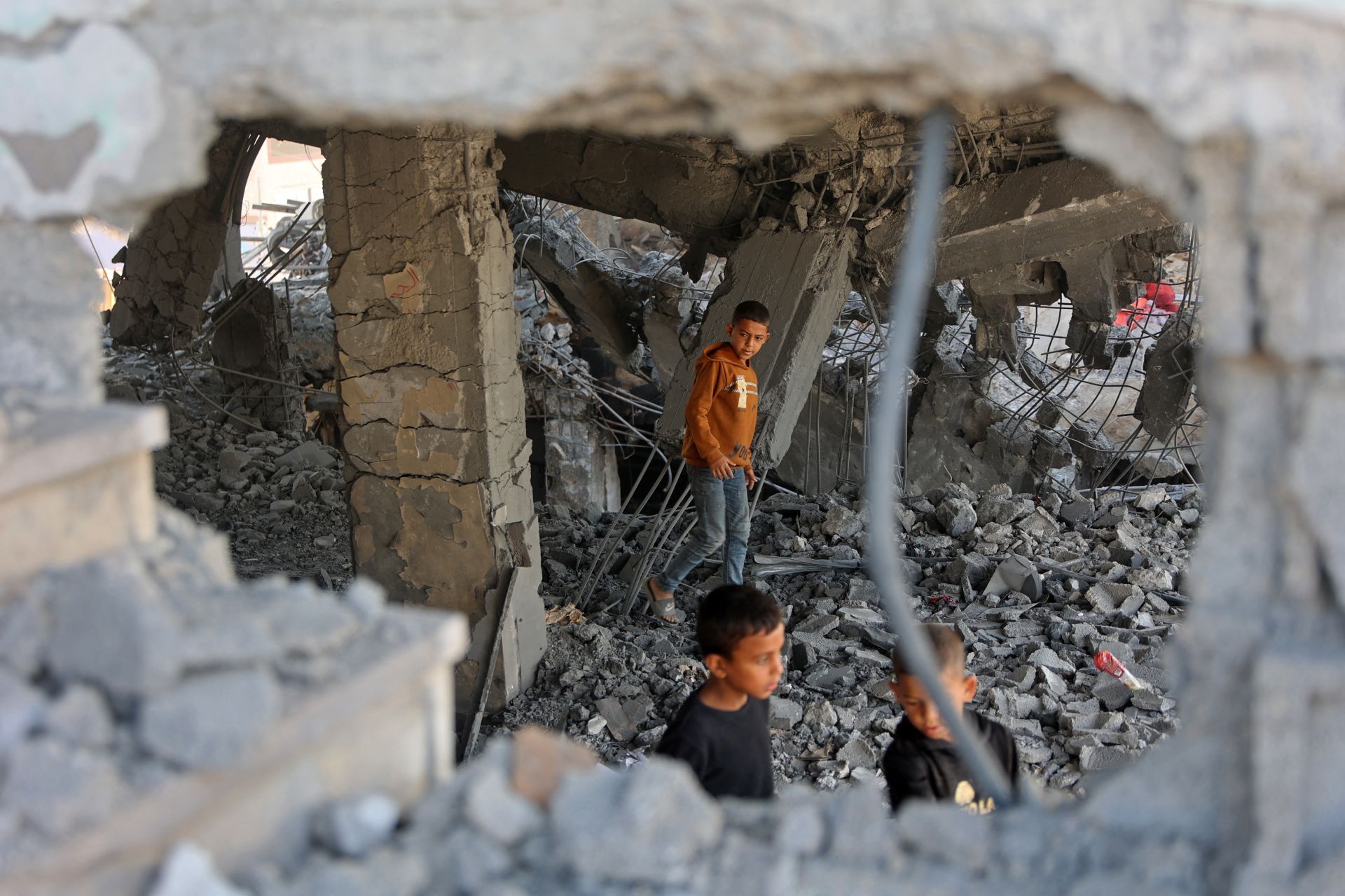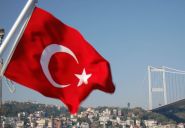- Home
- Middle East
- New Strikes on Gaza Kill Five

Palestinian boys walk amid the debris of a damaged building belonging to the Ministry of Religious Endowments, which was sheltering displaced people in the Zeitoun neighborhood of Gaza City on November 20, 2025, a day after it was targeted by Israeli army. ©OMAR AL-QATTAA/AFP
Gaza health authorities said fresh Israeli air strikes killed five people on Thursday, as ceasefire mediator Qatar warned the renewed attacks threatened to undermine the fragile weeks-long truce between Israel and Hamas.
The new strikes came the morning after one of the deadliest days in the Gaza Strip since the truce began on October 10.
Qatar, a key mediator in the Hamas-Israel war, condemned the latest air strikes as "a dangerous escalation that threatens to undermine the ceasefire agreement".
Mahmud Bassal, spokesman for the Gaza civil defense agency, told AFP that five people were killed and several wounded Thursday in strikes and artillery shelling east of Khan Younes in the south.
The Nasser hospital in Khan Yunis said three of those killed came from one family, including a one-year-old girl.
"We were sleeping peacefully," said a grieving Sabri Abu Sabt, visibly exhausted after losing his son and granddaughter. "We are peaceful and we don't want war."
Tala Abu al-Ala, who lost her sister, told AFP: "Every day there are martyrs. Every day we lose a relative. When will we find relief? Don't we have the right to live?"
Fighting back tears, she added: "I'm afraid I'll die without achieving any of my life's dreams."
'Nothing has really changed'
Israel has carried out repeated strikes against what it says are Hamas targets during the ceasefire, resulting in the death of more than 312 Palestinians, according to the health ministry in Gaza.
"We are worried about the war returning," said Lina Kuraz, 33, from the Tuffah neighborhood east of Gaza City.
"Every time we try to regain hope, the shelling starts again. When will this nightmare end?"
Mohammed Hamdouna, who was displaced from northern Gaza to a tent in the south, said, "Nothing has really changed".
"The intensity of the death toll has decreased, but martyrs and shelling happen every day," the 36-year-old told AFP.
"We are still living in tents. The cities are rubble, the crossings are still closed, and all the basic necessities of life are still lacking."
Yellow Line
On Wednesday, Israeli strikes killed 14 people in Gaza City and 13 in Khan Younes, according to the civil defense agency.
In Gaza City, Ahlam Halas carried the four-month-old daughter of her nephew, who was among those killed on Wednesday.
"He didn't even get the chance to rejoice in her birth and hear her call him 'papa'," she said.
Under the US-brokered ceasefire deal, Israeli troops in Gaza have withdrawn behind the so-called Yellow Line.
Israeli government spokeswoman Shosh Bedrosian accused Hamas of "continuing to violate the ceasefire", with "terrorists crossing over the Yellow Line".
"Israel made the decision independently to conduct these air strikes and did not ask for permission to protect ourselves and our people."
An American official told AFP that "the US was notified in advance" of the strikes by Israel.
UN chief Antonio Guterres's spokesman urged all sides to ensure that the ceasefire holds, and called for civilians to be spared from harm.
"We are indeed deeply concerned about the Israeli airstrikes that we've seen in which civilians were reportedly killed and injured," Stephane Dujarric told reporters.
Hamas appeals to mediators
Hamas urged US President Donald Trump, who helped broker the ceasefire, and other international mediators to put pressure on Israel to stop its attacks.
"This violation requires serious and effective action from the mediators to pressure (Israel) to stop these violations and uphold the ceasefire agreement," Hazem Qassem, a spokesman for the Islamist movement, told AFP in Gaza City.
Retired brigadier general Eran Ortal, a senior research fellow at the Begin-Sadat Center for Strategic Studies outside Tel Aviv, told AFP that Israel was "under international pressure" to preserve the ceasefire, with Washington "mobilizing the entire region" with a view to striking wider deals.
"Therefore, although Hamas has not been disarmed, and there is a strong likelihood that it will also manage to avoid disarmament in the near future, the potential for renewed warfare in Gaza does not appear high."
AFP
Read more



Comments